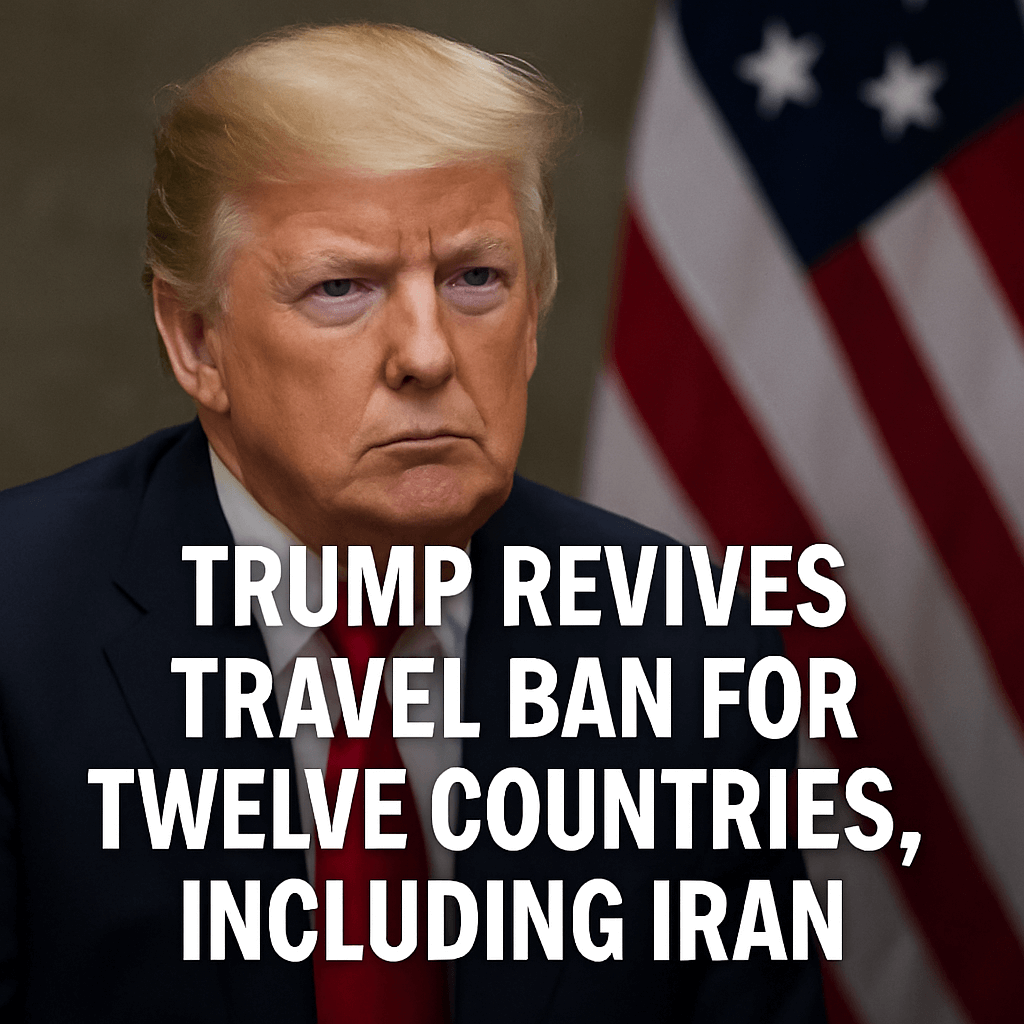Trump Revives Travel Ban for Twelve Countries, Including Iran

In a move reminiscent of his earlier presidency, former President Donald Trump has signed a proclamation that reinstates travel restrictions aimed at several countries deemed a national security risk. This latest travel ban, implemented through executive action, is slated to come into effect on 12:01 a.m. Monday.
List of Affected Countries
The newly revised travel ban affects a dozen nations, namely:
- Afghanistan
- Burma
- Chad
- Republic of the Congo
- Equatorial Guinea
- Eritrea
- Haiti
- Iran
- Libya
- Somalia
- Sudan
- Yemen
In addition to this primary list, the proclamation includes heightened restrictions on visitors from additional countries, which include:
- Burundi
- Cuba
- Laos
- Sierra Leone
- Togo
- Turkmenistan
- Venezuela
Legal Framework and National Security Rationale
This proclamation stems from an executive order issued on January 20, which mandated the departments of State and Homeland Security, along with the Director of National Intelligence, to evaluate the national security risks associated with international travelers from specific countries. President Trump stated, “I must act to protect the national security and national interest of the United States and its people,” reinforcing the administration’s commitment to national security.
The travel ban reinstates and expands upon earlier measures first enacted in January 2017, which limited entry for citizens of seven predominantly Muslim nations: Iraq, Syria, Iran, Sudan, Libya, Somalia, and Yemen. An array of challenges followed the original travel ban, with many travelers facing immediate consequences, including detainment at U.S. airports. The Supreme Court ultimately upheld a revised version of the ban in 2018 which had broadened its scope to include travelers from other regions such as North Korea and certain Venezuelan officials.
Expert Opinions on National Security and Global Relations
Researchers and policy analysts have scrutinized the implications of such travel bans on both national and international security. Experts argue that while the intent is to safeguard the United States from potential threats, these policies may have broader implications for U.S. foreign relations—particularly in predominantly Muslim countries, which may view the travel bans as discriminatory.
“Travel bans may actually hinder the ability of the U.S. to engage meaningfully with these nations on security issues and trade, often fostering resentment rather than cooperation,” said Dr. Alice Thompson, a geopolitical analyst.
Furthermore, the bans can complicate the pathways for asylum seekers, particularly from conflict-ridden areas like Afghanistan and countries facing humanitarian crises. As the geopolitical landscape evolves, the U.S. may need to reassess these travel restrictions in light of their efficacy and moral implications.
Impacts on Travel and Immigration
The reinstated travel ban will also have economic repercussions, particularly for the travel and tourism sectors, which have struggled to recuperate from pandemic-induced downturns. Increased restrictions may deter international travelers and impact sectors reliant on foreign students and professionals.
Travel agencies and related businesses must now navigate these complexities, often leading to a reduction in bookable flights and potentially decreased income in the travel industry.
As the new restrictions come into play, travelers and immigration advocates are closely monitoring the situation for any further legal challenges or changes in the implementation of the policy.
Conclusion
The reinstatement of the travel ban reflects ongoing debates surrounding immigration, national security, and the intricacies of U.S. foreign policy. As the administration moves forward, the balance between safeguarding national interests and fostering international relations remains a critical discussion point.